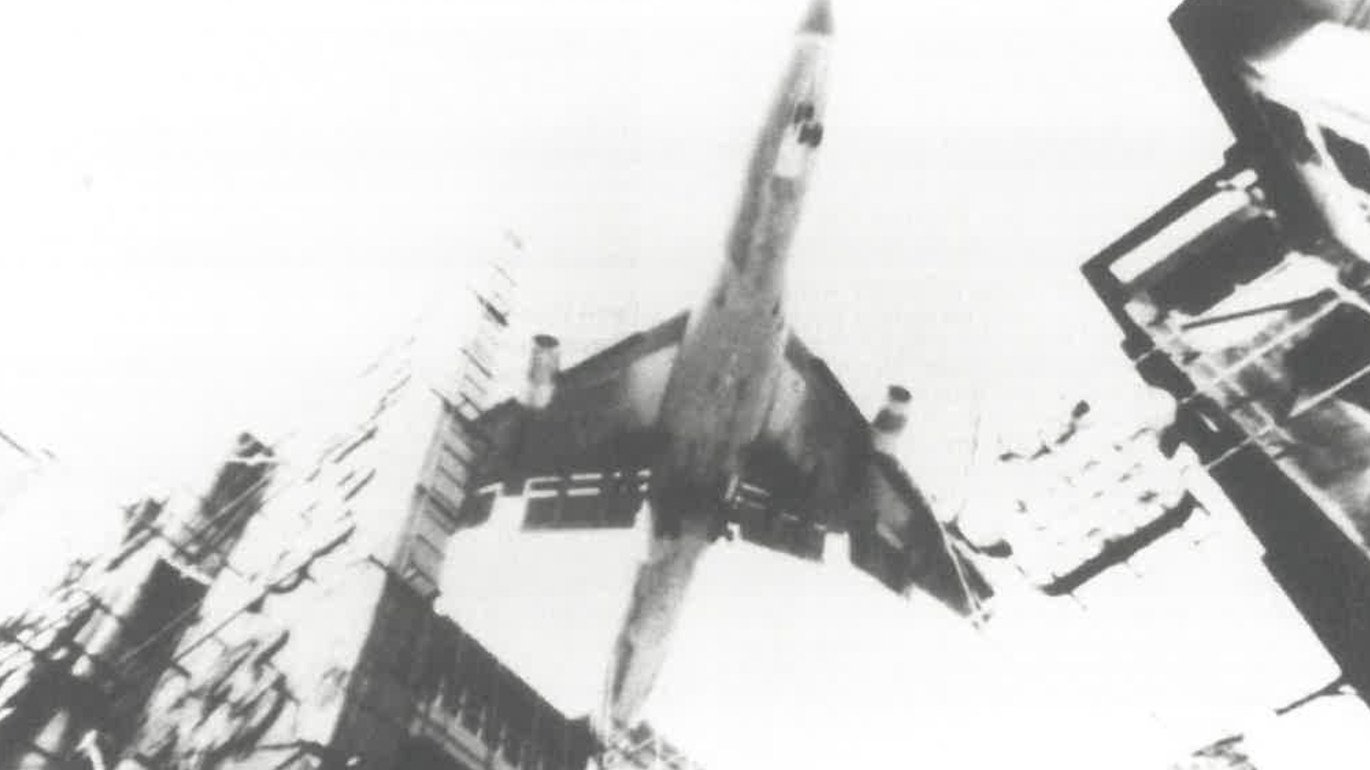the big screen
The shaken machine. In cinema, the image counts as much as its erasure. The attacked, the assaulted image, always a specialty of avant-garde film, remains what it has always been, even in the moment of its decomposition and decoding: an image, a point of attraction. "the big screen", a short film program compiled at Sixpack, tells of the violence and power of alienated and decaying images, thus: of cinema itself. Fire marks the entry, an extinction is underway: flames licker voraciously from a building, in a stained, scratched piece of nitrate film shot a century ago by someone whose name has not reached film history. What remains of the man at the camera are these images alone: pale remnants of reality, ghostly traces of a fading, bygone world, a document of doom, retroactively electrified by Christian Fennesz's buzzing music. The film is 56 seconds long, and it is called (after a word by Gustav Mahler): Tradition is the passing on of fire, not the worship of ashes. The light is passed on in the cinema, it exists, indelibly evident and far beyond a human life.
What cinema dreams of when it - closer to itself - no longer works correctly, no longer by the book, is exemplified by this small film package. It provides experiences that are exclusively reserved for the medium in which they are formulated. The screen expands to the Big Screen, where thinking and seeing, which can connect so unexpectedly in the cinema, go beyond their ancestral narrow boundaries. Watching death at work is, according to Cocteau, what every film ultimately boils down to. The cinema camera mercilessly records how bodies and things pass away. It models the world in time, it records the demise of those at (or against) whom it is directed. The sadness and vehemence inherent in the miracle images of this program are symptomatic: the irretrievability of the life it synthesizes, cinema, as a means of preserving a comprehensive memory of the world, acknowledges with regret.
The filmmakers represented here formulate their questioning of images as an attack. Peter Tscherkassky's Outer Space, like Deutsch, draws on found footage, glimpses cast by a stranger: Tcherkassky takes just a few sequences from a mainstream American shocker in CinemaScope that revolves around a young woman (Barbara Hershey) terrorized by shapeless demons, first to strip them of color and then to strip them of all the certainties of traditional narrative.
Cinema, where it tells of itself, tends toward abstraction. Routemaster, a cinematic study of acceleration from Finland, transforms its subject matter (racing cars thundering past) into patterns of light, lines of light, into pure frenzy. Director Ilppo Pojohla seeks the intoxication of speed in a quasi-musical composition for parceled canvas.
Hong Kong, a work by Dutchman Gerard Holthuis, logs life in and about the big city in unreal, heat-flickering images: meditation on a metropolis.
The strong presence of Austrian filmmakers in "the big screen" cannot be explained by sheer chauvinism; Austria's special position in the international film avant-garde, which has already lasted for decades, is well documented. Lisl Ponger, like Holthuis, finds her subjects in the foreign, but unlike Holthuis, she is completely averse to the elegant. Ponger's view of the foreign is not yearning, but analytical. Visually, déjà vu is well-organized, precisely calculated in terms of color: The film owes its flowing forward movement, its sensuality, to a man's red turban, the yellow of a little monkey's vest and, among other things, the blue of the sea, that utopian space of anonymous travelers. At the same time, Ponger does not show anything spectacular - the tension arises from the search for the intention of the images.
The courage to be hermetic is not lost on Josef Dabernig, in whose film Jogging is by no means run, only driven and watched. Dabernig's locations are as nameless as Lisl Ponger's, but more irritating, more uncanny.
The filmmakers in this program bring an urgent interest in the periphery into their work as a professional prerequisite, so to speak - Dabernig's camera scans the plastic covering of the dashboard, the driver's hands, the cassettes carried under the car radio. On the road, only animals are encountered, silent witnesses to an increasingly surreal drive: A flock of sheep drifts by, and street dogs look at the viewer seriously and pityingly, like the last survivors of a final emergency. Olga Neuwirth's orchestral music accompanies the traveler, singing and shimmering, in glissando - restlessly searching for a possible, unattainable final form.
Program
Tradition ist die Weitergabe des Feuers und nicht die Anbetung der Asche (Gustav Deutsch, AUT 1999, 35mm, colour, 56 sec.) Hongkong (Gerard Holthuis, NL 1999, 35mm, b/w, 13 Min.)
déjà vu (Lisl Ponger, Ö 1999, 35mm, colour, 23 Min.)
Jogging (Josef Dabernig, AUT 2000, 35mm, colour, 11 Min.)
Routemaster (Ilppo Pojohla, FIN 2000, 35mm, b/w, 17 Min.)
Outer Space (Peter Tscherkassky, AUT 1999, 35mm, b/w, 10 Min.)
for more information see downloads
Ein gemeinsames Programm von sixpackfilm und Stadtkino

